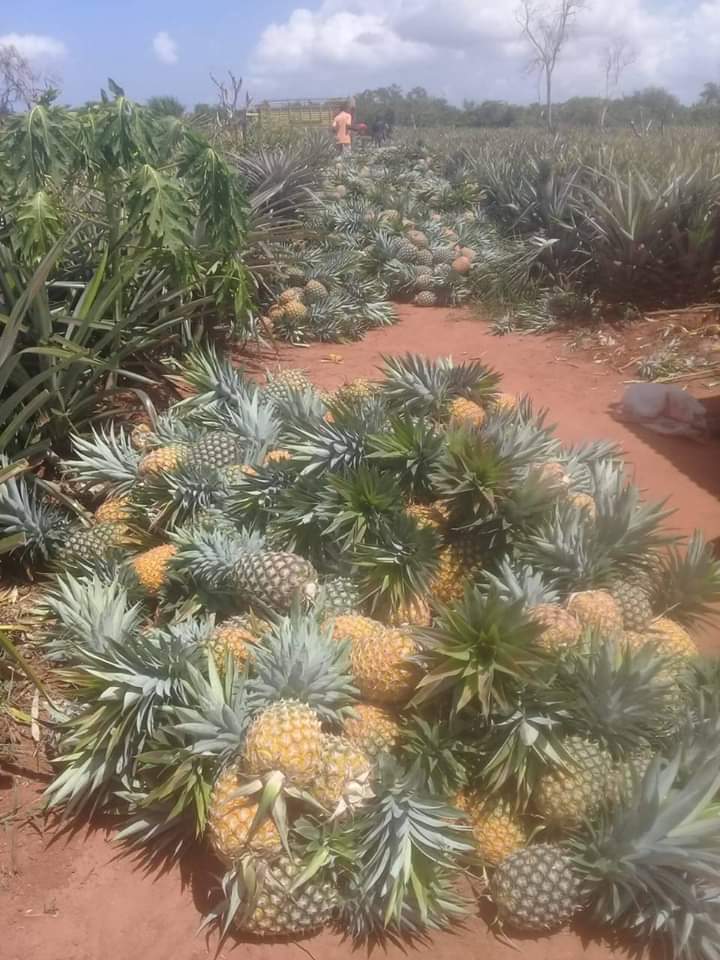Pineapples are the second most exported fruit in the world, after bananas, but with demand now growing sharply on the fashion for processing pineapples into wines, vinegars and baked goods, Kenya is ideally positioned to achieve export growth with the fruit.
According to a Global Market Review of Major Tropical Fruits report by the Food and Agriculture Organization (FAO), global exports of pineapple rose to around 3m tonnes in 2018, up 7.8 per cent from 2017. The sharp growth was primarily driven by rising demand for the fruit in the US, where sales rose by 27.5 per cent, but was also supported by strong growth in other major markets, such as Israel and the Middle East.
Europe is also an important buyer of pineapples, accounting for nearly a third of the global market, and spanning Kenya’s major markets for pineapples in France, Germany, Italy, Belgium, Netherlands, Sweden and Denmark.
A key driver in the growth has been new product niches, such as pineapple wines and vinegar. In the US, for instance, 48 squeezed fresh pineapples make 25 bottles of wine that sell at Sh400 each. While the costs go beyond the price of the pineapples themselves, based on the initial price of Sh20 per fresh pineapple (48 x 20 = Sh960), the wine business adds many times that input cost in final value, with the 25 bottles selling for a total of Sh10,000.
Pineapples are also cheaper than most other tropical fruits, such as avocados and mangoes, further helping sales during a time of relative austerity in international markets. According to Trigde, a US import research company, a kilogram of pineapple costs Sh147 while that of mangoes costs Sh194.
Demand is also being boosted by the fruit’s rise as a cooking ingredient in pies and cakes. The global bakery market was estimated at $203.8bn in 2018 and is projected to expand at an average rate of 3.2 per cent a year from 2019 to 2025, according to Bakery Product Market Size, Share & Trends Analysis Report by Grand View Research Inc.
RELATED CONTENT :Foods company buying cabbages, oranges, pawpaw, carrots, onions, potatoes, pineapples, passion fruits and tomatoes e.t.c. from all-comers
RELATED CONTENT :Nandi farmer who abandoned maize for pineapples has no regrets
RELATED CONTENT :Farmer making maximum yields from pineapples by row planting
Finally, pineapple sales are rising as a result of the world population’s interest in healthy eating, which has seen an increase in the consumption of tropical fruits generally. Eating pineapples gives the body healthy nutrition with energy and immunity vitamins being the two healthy highlights from the fruit. It also contains starch, potassium, Vitamin C, Protein, calcium and phosphorous.
In meeting this rising demand, Kenyan farmers, furthermore, have a competitive advantage in the Israeli market, because, apart from Ghana, it’s the only other African country that can export the fruit to Israel as it has complied with the food safety regulations that stipulate that the fruit must be void of pest and diseases.
According to Fresh Plaza, farmers who export this fruit to Israel can earn 15 times more than their peers who sell locally. A medium sized pineapple sold in Kenya for Sh60 goes for Sh955 in Israel, with Fresh Plaza noting that this is a very promising market for farmers, as the country imports a large volume of pineapples.
As producers, small scale farmers contribute 10 per cent of Kenya’s total pineapple production with large scale farms and plantations contributing the other 90 per cent. Of the large scale farms, Delmonte contributes the biggest share, at close to 1.3m tons, while the Kakuzi and Ndemo farms contribute 7,000 tons and 16,000 tons.

Pineapples are grown mostly in Central region (Gatundu and Thika) in large scale and in Lake Basin region (Homa Bay, Kericho, Migori, and Kisii areas) and the Coast region (Malindi region) in small scale.
Across these regions, Kenya produces more than is demanded in the local market, making a focus on export markets key to curbing wastage. However, successful exports depend on quality and compliance with international food safety regulations.